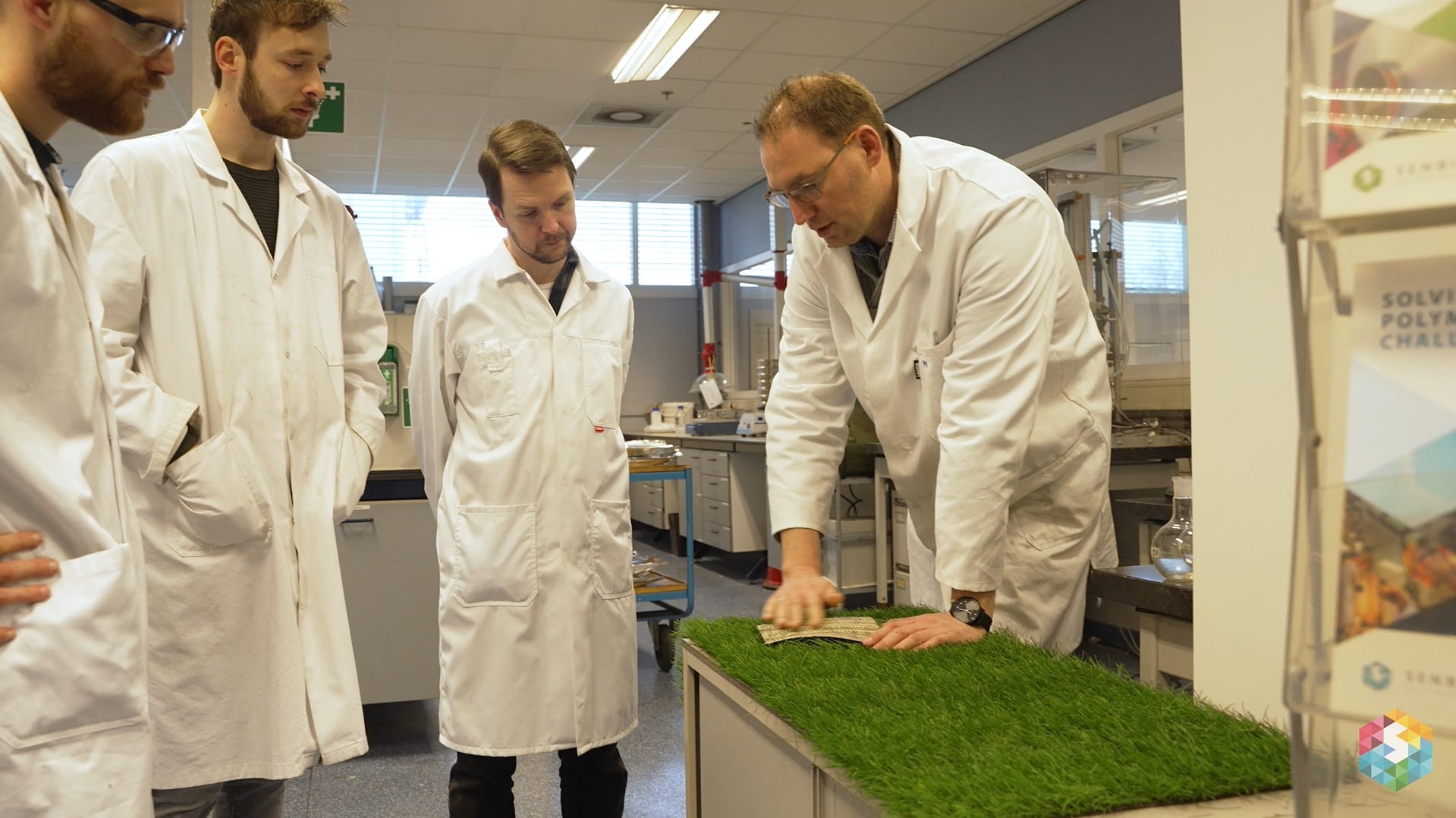
At Senbis, we offer students the opportunity to actively participate in valuable research, working with cutting-edge R&D machinery, state-of-the-art laboratories, and a team of polymer experts. Whether you’re interested in exploring multiple topics through our internship program or diving deep into a specific R&D challenge during our graduation program, we provide an unparalleled environment to boost your learning curve.
Key Areas of focus
Many of our research efforts concentrate on biopolymer synthesis and applications, particularly in the form of mono- or multifilaments. These projects are essential to developing innovative “spin-off” business activities, focusing on:
- A new biodegradable polymer resin (polymer synthesis)
- High-performance biodegradable monofilaments (e.g., trimmer lines)
- Biodegradable yarns and fibers
- Biodegradable artificial grass components
- Testing the biodegradation behavior of biopolymers and yarns in controlled environments
Program overview
Internship program
- Learn and apply polymer synthesis routes such as polycondensation and ring-opening polymerization.
- Gain hands-on experience with shaping techniques like multifilament melt spinning, monofilament extrusion, and filament drawing (stretching).
- Conduct laboratory analyses including thermal, mechanical, rheological, and physical structure analysis.
Graduation program
- Build on knowledge from the internship to scientifically explore specific research topics.
- Address questions like:
- How to design a biodegradable polymer to replace PET/PA in textiles (BIOTTEK)?
- Which polymer compositions provide optimal mechanical and thermal properties for trimmer lines?
- How can natural fibers and biodegradable polymers improve performance for sweeping brushes?
- How to enhance resilience properties of artificial grass yarns?
Activities You’ll Be Involved In
- Conduct desk studies to design biodegradable polymers for textile applications.
- Perform polymerization trials and optimize synthesis methods.
- Characterize synthesized materials using DSC, rheology, NMR, GPC, and more.
- Build and fine-tune extruders for filament production, spinning, and drawing trials.
- Map mechanical properties and test product performance.
- Analyze changes at the molecular level using methods such as IR, microscopy, X-ray diffraction, and DSC.
- Regularly evaluate findings and explore new research directions with colleagues.
- Document and report your progress.
Got interested?
We’re looking for enthusiastic students passionate about sustainability and innovation. Send your CV and motivation letter to [email protected], or upload your documents on this page.
We’re excited to hear from you and welcome you to our team at Senbis Polymer Innovations! 🌱
